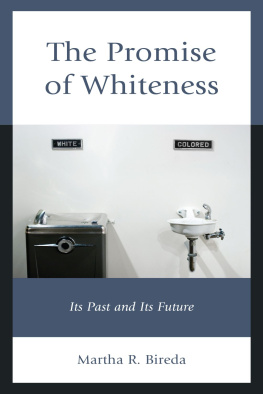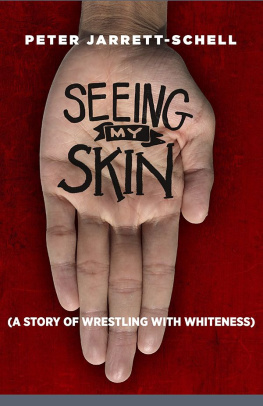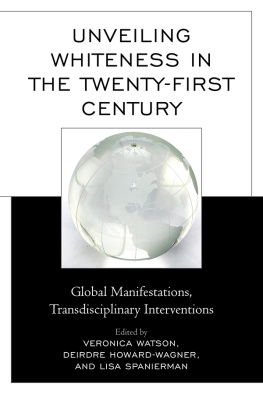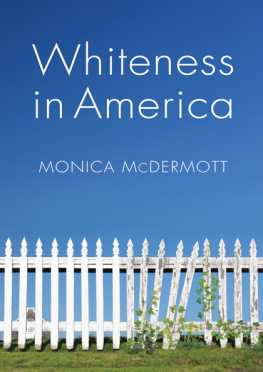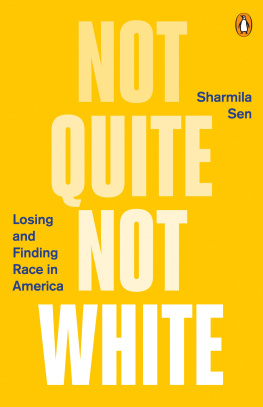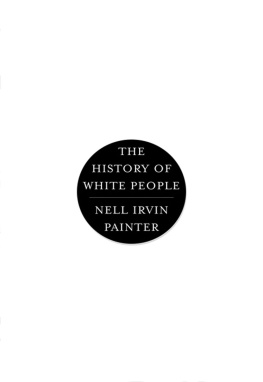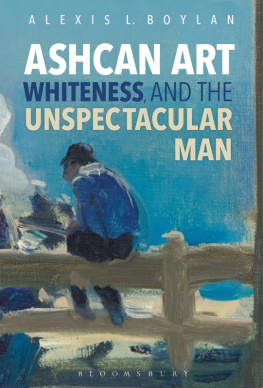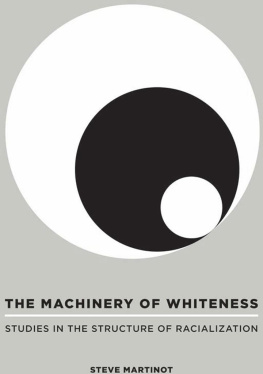About the Author
Stephany Dr. Stiletto Rose, Ph.D. is an assistant professor of Womens and Ethnic Studies at the University of Colorado, Colorado Springs. Her research focuses on socio-cultural impacts racialized representations have on individuals and communities in English language literatures as well as popular culture from the United States and the African Diaspora. Her scholastic interests emerge from a personal space of being an African American woman contextualized by the historical and contemporary dynamics of power and privilege operating at the crossroads of race, gender, class, sexuality, and religion that manifest in the United States and are transmitted via cultural imperialism throughout the globe. Hence she is committed to intellectually and artistically transforming systems of domination through vital scholar-activism.
Acknowledgments
If the journey of a thousand miles begins with a single step, then the writing of a book must begin with a single word. Or is it much earlier? In the belief that a book can be written? In the belief that there is something to write about? Wherever or whenever it began, this journey of writing, releasing the passions that live within in order to transform the world without, could not have taken place alone. Because I have not been alone throughout this process, I am grateful and must honor those who have accompanied me. Whether there in the early hours of conceptionmany, many, moons ago with a lot fewer grey hairsor if weve just met in the final midnight hours, unto you I give my gratitude.
Many people say that their family is the best, and for each of them this fact is true. Mine is no different; without my mother and father, who allow me to awaken them at all hours of the day and night with my tears, ideas, and frustrations, I would not possess the faith to embark upon such a journey. To my siblings, nieces, nephews, aunts, uncles, cousins, and grandmother, I honorably receive the epithet of professional student, for it encourages me to leave a legacy that will neither rot, spoil, nor wither away.
There is a host of spiritual family members who have prayed and actively guided me into the light when this colored girl had had enough: Melvin Rahming (you are truly an awesome mentor and friend); Irma McClaurin (thank you for modeling how to lift as we climb); Sidney Robbins; LaToya Barham; Malene Quarles; Kristy Arnold; Kevin Brooks; Chasity Johnson; Jessica and Grandma Williams; Alicia Mackey-Robinson; L. Victoria Johnson; Erica Temuru; Erik C. Wade, and Nikima Evans; the Breakfast Club thats been going strong since 1995: Monica, E-Shawn, Tenisha P., Daniel N., Bartell, Cesar, and Jason; Lynschindre and Kristopher J. Anderson, my Words with Friends partners who allow me to escape overthinking everything every now and again; my church families: Ebenezer Baptist, Friendship Baptist, All Nations Mission, Deliverance Tabernacle, and the faith community Ive developed through PICO National Networkparticularly at home with Together Colorado. Special regards cant even begin to articulate the impact Rev. Reginald Fletcher and Pastor Clarence W. Davis have had while keeping me to task as I walk out this vocation. Thank you for holding on to my hand even when Ive tried to let go of yours.
There are colleagues who work in the same space with you and then there are colleagues who co-labor in the art of production alongside you. I am blessed to have colleagues near and far who have applied their hands, minds, and time to helping me grind out this work. Much gratitude is extended to my colleagues in and affiliated with WEST or the Matrix Center: Abby, Aditi, Andrea, Brenda J., Carole, Christina J., Dena, Daryl, Eddie Moore, Jane Muller, Janice, Kee, and Kimberly. Social justice may not be everyones goal, but we know that we labor not in vain. Also, Jeff Montez de Oca and Katherine Mack, only God knows where this book would have been if not for our writing sessions and check-ins; on to the next projects! And to my fellow UCCS colleagues who have encouraged me along the way: Roger Martinez, Jane Rigler, Paddington, Raphael S., Rebbeca L., K. Alex, Kristen O., Michelle N., Linda D., M.J. Sullivan, Eric Steen, Glen Whitehead, Kurt Holder, and Anthony Cordova, thank you.
To my sisterhood from over yonder in the private estate who have made this life a lot more bearable, Heidi R. Lewis, Manya Whitaker, Queen Takiyah Nur Amin, and Imani Owens, thank you. To the brilliant minds along the way whose work inspires me: Akil Houston, Julius Bailey, Rhonda Fredrick, Craig Smith, Corrie Claiborne, Ebonie Cunningham-Stringer, Deborah Elerbee, Rafael Gomez, Rebecca Fuches, Dr. Zoe, Kesho Scott, David J. Leonard, Regina Bradley, Fanon Wilkens, Harvey Neptune, Bakari Kitwana, Dr. Def, Scott Heath, Kimberly and David Simmons, Lee and Sujey, Patrick Oliver, Robert and Michelle Vanderberg; Sherietta Murrell, Michael Ralph, Brian Johnson, Stephanie Allen, Troy CLE, Adam Mansbach, Teri Adkins, Davey D., Retta Morris, Sophie Bjork-James, Sarah Green, Jill Humphries, Gloria Montgomery, Bruce McCluggage, Tre Wentling, Ernest Gibson, Monica Lyles Green, and Matt Balano, many blessings for being brothers and sisters in the academy! Additionally I owe a great deal to the following organizations that have allowed me to walk and talk through the ideas ruminating in my head: National Council for Black Studies, National Association of Womens Studies, Multi-Ethnic Society of Europe and the Americas, International Conference on Caribbean Literature, College Language Association, and the Social Science Research Council.
As stated previously, this work began so long ago, and if it had not been for Gwendolyn Morgan stopping me one CAU day in Haven-Warren Hall, none of this would have begun. Dr. Vinyard, Dr. Pickens, Dr. Black, Mrs. Lawhorn, Mama Gay-linn Jasho and Isabella Jenkins, thank you for allowing my critical consciousness to be developed at your feet. Additionally, I thank Rudolph Byrd, Cynthia Spence, and the UNCF/Andrew Mellon Foundation for seeing me as part of the academy even when I could not see for myself. Additionally, Susan Curtis, Joseph Dorsey, Robert Lamb, Venetria Patton, Ryan Schneider, Antonio Tillis, and Vernon Williams, I hope you feel that the seeds of your labor have born good fruit. Lastly, there are also a myriad of scholars who walk this earth and live a life of scholastic activism that inspires me to aspire to the honor of scholar-activist: Michelle Alexander, bell hooks, Niki Giovanni, Mark Anthony Neal, Dorothy Tsuruta, Cornell West, Patricia J. Williams, and Conrad Worrill.
As an academic, I stand on the shoulders of those whove come before me. Yet, as I teacher, I work diligently for those who have yet to come. For those who have allowed me the joy in teaching the little that I have learned, I am forever blessed. Still I know there are some who will take the baton from me continuing in the journey. You make this all the more worth doing. Journey on, Joy Anderson, Tamuka Chidyausiku, Vanessa Fuller, Rysheeda Goosby, Whitley Hadley, Kalina Harris, Duke Harmon, David Kelly, Lana Payton, Tyrone Shealy, UCCS BSU, and Lisa Young!
Bibliography
9/11A Public Emergency? spec. issue of Social Text 72. Eds. Edwards, Brent, Stefano Harney, Randy Martin, Timothy Mitchell, Fred Moten, and Ella Shohat 20, no. 3 (2002).
Adam Mansbach. 19 Dec. 2005 http://www.adammansbach.com/about.html.
Akbar, Naim. Breaking the Chains of Psychological Slavery. Tallahassee, FL: Mind Productions & Associates, Inc., 1996.
Alexander, Michelle. The New Jim Crow: Mass Incarceration in the Age of Colorblindness. New York: The New Press; 2012.
Allen, Theodore. The Invention of the White Race: Racial Oppression and Social Control. Vol. 1. New York: Verso, 1994.
Alliance for Board Diversity. Missing Pieces: Women and Minorities on Fortune 500 BoardsFact Sheet. August 15, 2013 http://theabd.org/Reports.html (accessed August 20, 2013).


